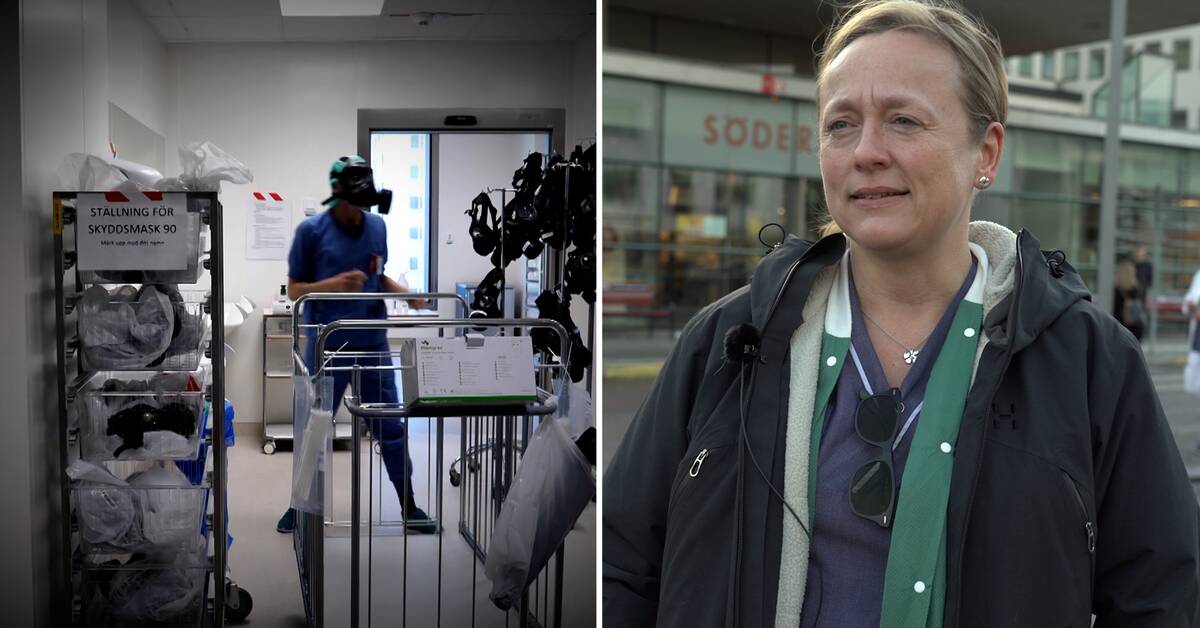Since Wednesday, Sweden is a country without restrictions.
The relief marks some kind of end to the period we have been in since the early winter of 2020.
But for Emma Jerkegren Olsson, section manager at Södersjukhuset's intensive care unit, it is difficult to think that everything is over.
- We hope, of course, a cautious hope that life will return, she says.
It was in February 2020 that she and her colleagues understood that the spread of the new coronavirus would have major consequences for healthcare.
Especially when Italian doctors and nurses described their reality.
- Then we understood that it would come to us at any time, says Emma Jerkegren Olsson.
Lack of space before the pandemic
At the beginning of the pandemic, Södersjukhuset had a total of 16 IVA places.
Too few, says Emma Jerkegren Olsson.
- We started as real underdogs, you could say.
In a short time, the intensive care unit was scaled up and 60 places were added.
They were refilled almost immediately.
The other hospitals in Stockholm also expanded their intensive care units.
But it is not the physical places that are most important, according to Emma Jerkegren Olsson.
- It would never have happened without the staff, they are the ones who had to pay the price for this enormously escalated care.
The number of people who can work at the intensive care unit, who have the right education for it, is limited, she says.
PTSD in staff is investigated
Working during the pandemic is described by Emma Jerkegren Olsson as "an enormous strain".
- It is difficult to imagine if you have not worked in it.
Dalarna University has recently started a study of 4,000 nurses who will find out if they have suffered from various stress-related problems, including PTSD, post-traumatic stress disorder, after the pandemic.
- There are studies from the SARS epidemic where there was an increased risk of burnout, anxiety and PTSD among healthcare professionals.
And it has been seen that there is a great increased risk of PTSD during this pandemic as well, says Ann Rudman, Senior Lecturer in Nursing at Dalarna University.
The goal is to detect symptoms early, before it has far-reaching consequences, and give employees and employers tools to prevent problems from occurring and help those who are about to become ill.
- If you increase the knowledge about symptoms and work preventively, you will cope with a future pandemic much better, says Ann Rudman.

